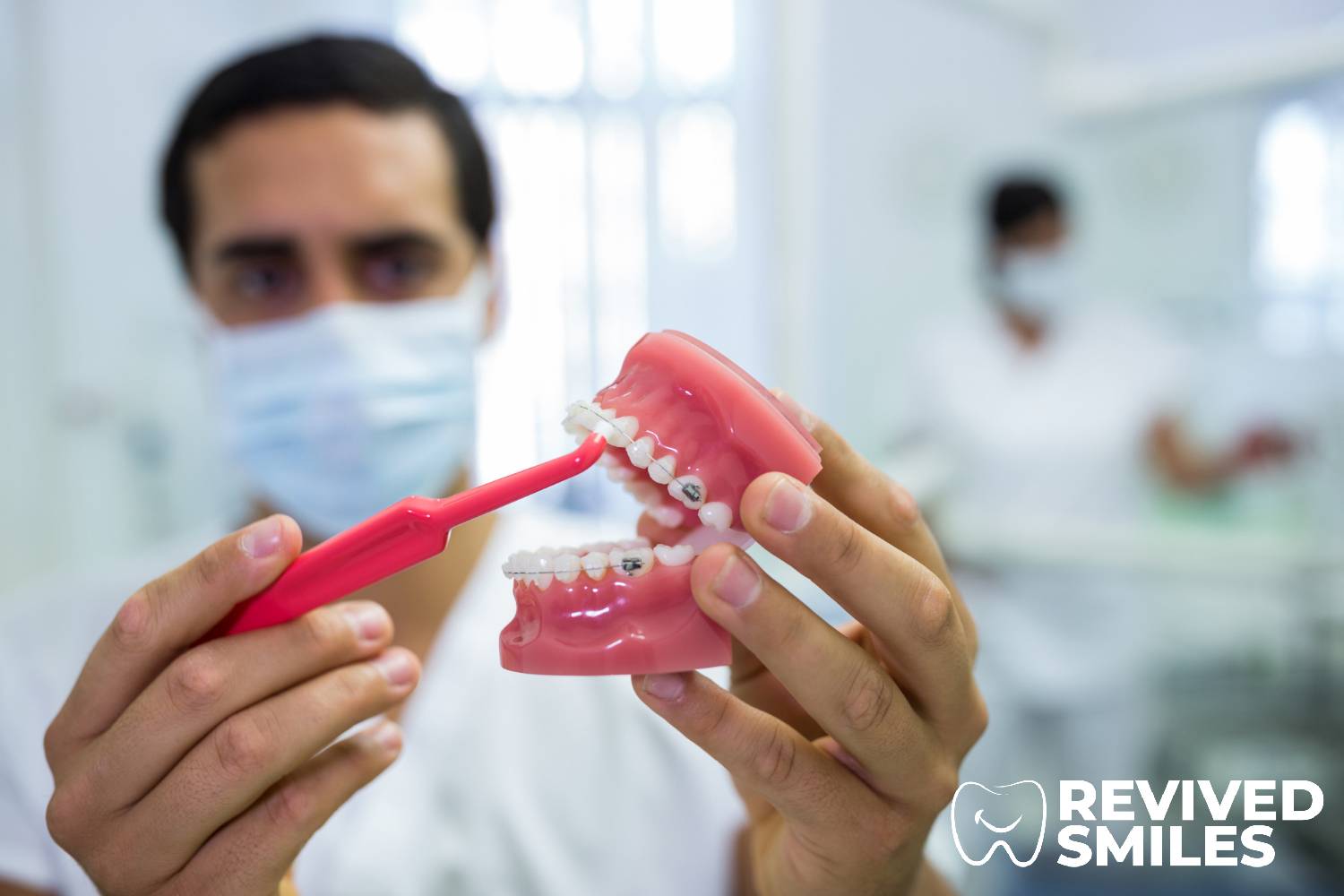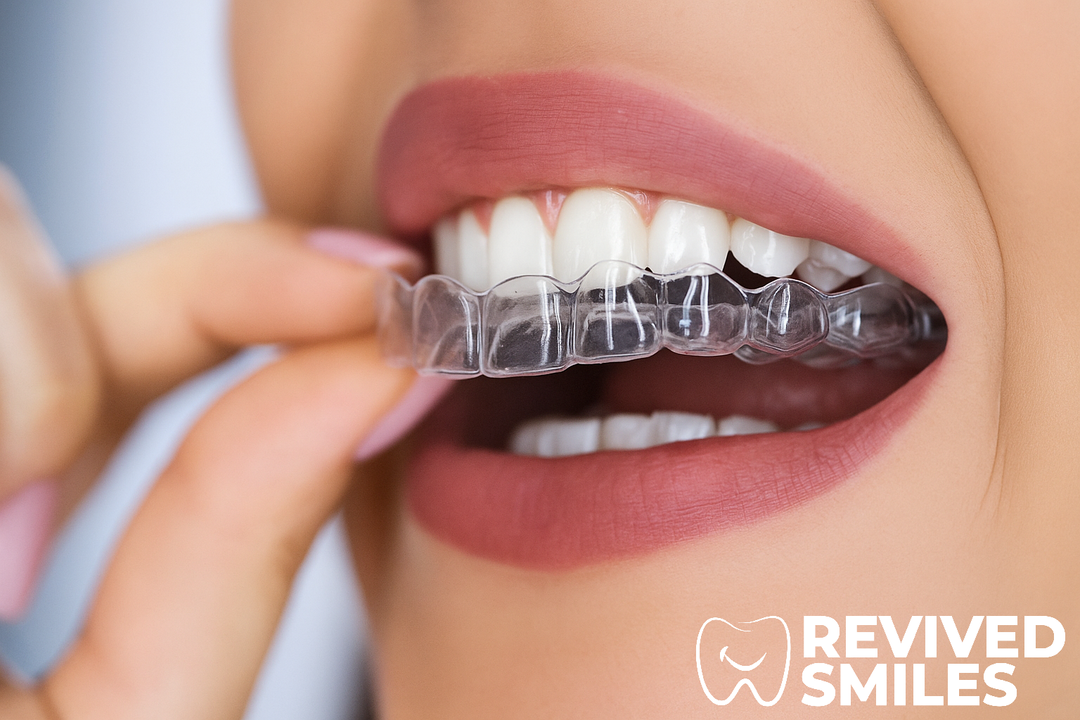The Ultimate Guide to Denture Cleaning: Tips for a Healthier Smile

What are Dentures?
Dentures are a type of removable dental appliance designed to replace missing teeth, restoring the natural appearance and function of the mouth. They are custom-made to fit each individual’s unique oral anatomy, ensuring a comfortable and secure fit.
Dentures can be made from various materials, including acrylic, metal, and ceramic, and are available in different types, such as complete dentures, partial dentures, and overdentures.
Complete dentures are used when all teeth are missing, while partial dentures are suitable for those who still have some natural teeth remaining. Overdentures fit over a small number of remaining natural teeth or implants, providing additional stability.
Each type of denture is designed to meet specific needs, helping individuals regain their ability to chew, speak, and smile confidently.
Who Might Need Dentures?
Anyone who has lost teeth due to various reasons such as gum disease, tooth decay, injury, or congenital conditions may need dentures. Dentures are a common solution for people who want to improve their chewing, speaking, and appearance.
According to the British Dental Journal, dentures are a popular treatment option for tooth loss, and with proper care and maintenance, they can last for many years.
Dentures not only enhance the aesthetic appeal of a smile but also play a crucial role in maintaining oral health. They prevent the remaining natural teeth from shifting, support facial muscles, and improve overall oral function.
Whether you need complete dentures or partial dentures, consulting with a dental professional can help determine the best option for your specific needs.
Why Denture Cleaning is Essential
A bright, healthy smile isn’t just about aesthetics—it’s about overall well-being. For denture wearers, proper cleaning is as crucial as brushing natural teeth. Dentures, like real teeth, can harbor bacteria, plaque, and food particles, leading to bad breath, gum irritation, and even infections.
Neglecting denture care can shorten their lifespan and cause discomfort. Stains and odors build up over time, making dentures less effective. Regular cleaning not only maintains their appearance but also ensures they function properly, keeping your gums and mouth healthy.
Emphasizing denture cleanliness is essential to prevent health risks and ensure the longevity of dentures.
The Importance of Cleaning Dentures Regularly
Preventing Bacterial Build-Up
Dentures sit in the mouth all day, accumulating bacteria just like natural teeth. Without regular cleaning using various denture cleaning methods, such as mechanical and chemical techniques, harmful bacteria can lead to oral infections like stomatitis and thrush, causing redness and swelling in the mouth.
Avoiding Plaque and Tartar
Plaque can build up on dentures just as it does on natural teeth. Over time, this turns into tartar, which can be tough to remove and may cause gum inflammation.
Eliminating Bad Breath
A clean denture means fresher breath. Odor-causing bacteria thrive on dentures if not cleaned properly. Daily cleaning removes food particles and bacteria that contribute to bad breath.
Prolonging Denture Longevity
Well-maintained dentures last longer. Scratched or poorly cleaned dentures can deteriorate faster, leading to costly replacements. Gentle cleaning methods help keep them in top shape for years. Avoid using bleach to clean dentures as it can weaken dentures and result in an unattractive appearance.
Preventing Gum Disease and Oral Health Complications
Dirty dentures can contribute to gum inflammation and infection. Poor oral hygiene in denture wearers has been linked to serious health concerns such as pneumonia, especially in elderly individuals. By keeping dentures clean, wearers reduce their risk of these complications.
How to Clean Dentures at Home

Cleaning dentures at home doesn't have to be complicated. Following a proper routine ensures their longevity and keeps your mouth healthy.
Step-by-Step Cleaning Process
Step 1: Rinse Dentures After Meals
After eating, remove your dentures and rinse them under lukewarm water. This helps wash away food particles and debris before they harden.
Step 2: Brush Dentures Daily
Use a soft-bristled toothbrush and a non-abrasive denture cleaner to gently brush all surfaces. Avoid regular toothpaste, as it can be too harsh and cause damage; instead, use denture toothpaste, which is specifically formulated to be safer for acrylic dentures.
Step 3: Soak Dentures Overnight
Most dentures need to stay moist to maintain their shape. Place them in a denture soaking solution or plain water overnight to keep them hydrated and clean.
Step 4: Clean Your Mouth and Gums
Even if you wear full dentures, it's important to clean your gums, tongue, and any remaining natural teeth. Use a soft toothbrush or gauze to gently clean your oral tissues to reduce bacteria buildup.
What NOT to Do When Cleaning Dentures
-
Avoid using hot water – It can warp the dentures.
-
Do not use regular toothpaste – It is too abrasive and may scratch the surface.
-
Skip harsh chemicals – Bleach or household cleaners can damage dentures and harm oral tissues.
-
Avoid harsh chemicals on metal dentures – They can damage the denture's surface. Seek advice from your dental team regarding proper hygiene practices.
-
Do not sleep with dentures in – This can cause bacterial buildup and increase the risk of infections.
Effective Cleaning Methods for Different Types of Dentures
Cleaning of Acrylic Dentures
Acrylic dentures are the most common type of denture and require gentle cleaning to maintain their appearance and longevity. To clean acrylic dentures, use a non-abrasive denture cleaner and a soft-bristled toothbrush.
Avoid using regular toothpaste, as it can be too abrasive and scratch the surface of the dentures. Instead, use a denture cleaning paste specifically designed for acrylic dentures. Rinse the dentures thoroughly with warm water and soak them in a denture cleaning solution to remove any remaining bacteria and debris.
It’s essential to note that acrylic dentures can be damaged by harsh chemicals, so it’s crucial to use a gentle cleaning method. Additionally, avoid using bleach or other strong chemicals, as they can weaken the dentures and cause them to become brittle.
By following these cleaning methods, denture wearers can maintain optimal denture hygiene and ensure their dentures remain in good condition for years to come.
Regular cleaning and maintenance can also help prevent oral health issues, such as gum disease and tooth decay, and ensure a healthy, beautiful smile.
Best Denture Cleaners on the Market
Choosing the right denture cleaner makes a big difference. It is important to choose the right denture cleanser to maintain proper denture hygiene. Here are some of the best options available:
Different types of denture cleansers, such as powders and gels, are effective in maintaining denture cleanliness. Here are some of the best options available:
|
Denture Cleaner |
Type |
Pros |
Cons |
|
Polident 3-Minute Tablets |
Tablet |
Quick cleaning, removes stains |
Requires soaking |
|
Efferdent Denture Cleaner |
Tablet |
Affordable, easy to use |
May not remove deep stains |
|
Smile Refresher Denture Cleaning |
Solution |
Gentle and effective |
Requires overnight use |
|
Fresh Guard by Efferdent |
Soaking Crystals |
Strong formula, good for partials |
Slightly expensive |
|
Retainer Brite |
Tablet |
Multipurpose (dentures & retainers) |
Not as strong for tough stains |
How to Choose the Right Cleaner
Consider your specific needs when selecting a denture cleaner. If you need quick results, opt for a fast-acting tablet. For deep cleaning, overnight solutions work best. Always check the product label to ensure it's safe for your type of dentures.
Additional Denture Care Tips
Beyond daily cleaning, there are a few extra steps to keep your dentures in top condition.
Store Dentures Safely
When not in use, dentures should be kept in a denture container with water or a cleaning solution. Allowing them to dry out can cause them to lose shape.
Handle Dentures with Care
Dentures are delicate and can break if dropped. Always hold them over a soft towel or a basin of water when cleaning them to prevent damage.
Visit Your Dentist Regularly
Routine dental visits help ensure your dentures fit properly and remain in good condition. Your dentist can also professionally clean them and check for any issues.
Watch for Signs of Wear and Tear
If your dentures feel loose, cause discomfort, or show visible stains, it may be time for professional cleaning or adjustments.
Keep a Backup Set of Dentures
Having an extra set of dentures can be beneficial in case of damage or emergency situations. If your dentures break, a backup can help you avoid discomfort while waiting for repairs.
Troubleshooting Common Denture Issues
Even with proper care, dentures can develop problems. Here are solutions for some of the most common issues:
Stains and Discoloration
Over time, dentures may stain from coffee, tea, or smoking. Use a denture whitening solution or visit your dentist for a professional cleaning if stains persist.
Bad Odors
Persistent bad breath could be a sign of bacterial buildup. Ensure you're soaking your dentures overnight and brushing them daily to eliminate odors.
Ill-Fitting Dentures
If dentures feel loose or uncomfortable, they may need adjusting. Avoid using over-the-counter adhesives long-term—instead, visit your dentist for a professional fitting.
Proper hygiene and care for denture teeth are crucial to ensure a comfortable fit and prevent health issues associated with improper care.
Cracks or Breaks
If your dentures crack or break, do not attempt to fix them at home. Using glue or other household adhesives can be harmful to your health. Instead, consult a dentist for professional repairs.
Final Thoughts on Denture Cleaning
A proper denture cleaning routine is essential for maintaining oral health and ensuring comfort. By following the right steps, using the best denture cleaners, and avoiding common mistakes, you can keep your dentures fresh and long-lasting.
For more denture care tips, check out our other guides on oral hygiene and explore our top denture care products for the best cleaning solutions.





Leave a comment